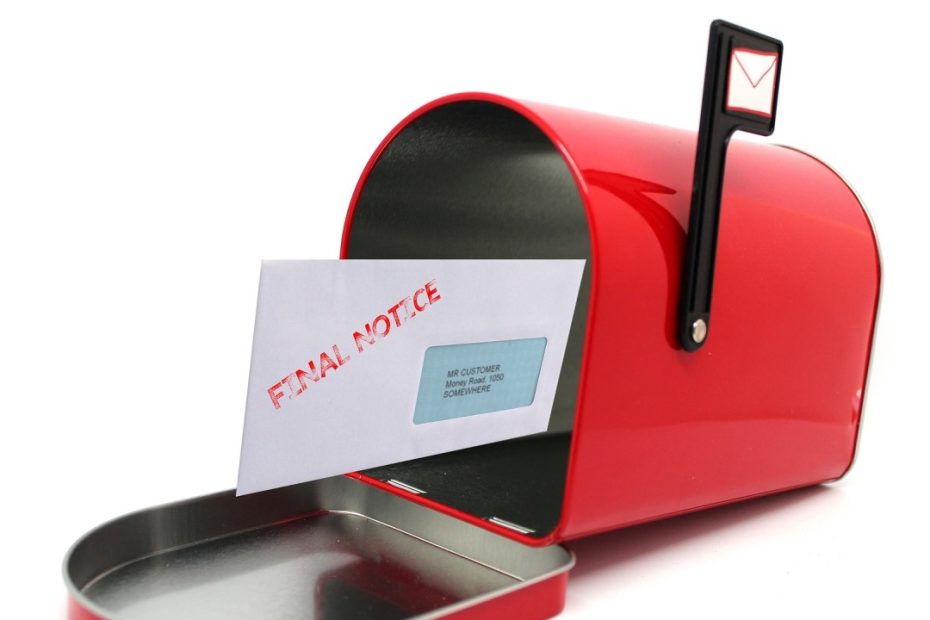If you manage rental properties long enough, you will eventually face a tenant that will not pay the rent. You must understand your options, including how long a landlord has to sue for unpaid rent. I have been a landlord for over 15 years, have over 70 rental properties, and own a property management company. I know how to handle this situation and will teach you in this article.
The five most effective ways to recover unpaid rent are to sue a tenant for the rent, deduct the rent from the security deposit, ask for a judgment during the eviction hearing, negotiate a payment plan, and write off the debt.
The process for collecting unpaid rent is often dictated by state law; in some cases, federal law will apply. I have developed a method for collecting past due rent that I’ve used in different municipalities.. I’ll describe the procedure in this article, but a diligent landlord should ensure that it conforms to local laws.
1. Sue a Tenant for Unpaid Rent

A small claims lawsuit is often the only way to collect a rental debt. This involves filing a civil action with your local small claims court, often known as a magistrate court. After you file the court action, the former tenant will receive a court order to appear at a court hearing before a judge. During that hearing, the judge will hear testimony from both sides and make a decision.
When suing a former tenant, a written lease is always better than an oral lease. An oral agreement is difficult to enforce when there is a disagreement.
In most jurisdictions, you can include overdue rent, late fees, attorney’s fees, and court costs in the suit. In most cases, you will only be awarded actual damages and can’t claim rent after the tenant has left the property. If you are also asking to recover the cost of damages to the unit, be sure to have proof of the damage. For more information, check out my article explaining what a landlord can charge.
How Long Does a Landlord Have to Sue for Unpaid Rent?
The time a landlord has to sue for unpaid rent is dictated by statute. The table below shows the number of years a landlord has to initiate a lawsuit for past-due rent.
| State | Years | State | Years |
| Alabama | 2 | Montana | 8 |
| Alaska | 10 | Nebraska | 5 |
| Arizona | 4 | Nevada | 4 |
| Arkansas | 5 | New Hampshire | 3 |
| California | 4 | New Jersey | 16 |
| Colorado | 6 | New Mexico | 6 |
| Connecticut | 6 | New York | 3 |
| Delaware | 4 | North Carolina | 3 |
| Florida | 5 | North Dakota | 6 |
| Georgia | 6 | Ohio | 4 |
| Hawaii | 6 | Oklahoma | 5 |
| Idaho | 5 | Oregon | 1 |
| Illinois | 4 | Pennsylvania | 4 |
| Indiana | 4 | Rhode Island | 4 |
| Iowa | 10 | South Carolina | 20 |
| Kansas | 5 | South Dakota | 6 |
| Kentucky | 5 | Tennessee | 6 |
| Louisiana | 3 | Texas | 4 |
| Maine | 6 | Utah | 6 |
| Maryland | 3 | Vermont | 8 |
| Massachusetts | 6 | Virginia | 5 |
| Michigan | 6 | Washington | 4 |
| Minnesota | 4 | West Virginia | 5 |
| Mississippi | 4 | Wisconsin | 4 |
| Missouri | 10 | Wyoming | 4 |
In many states, the statute of limitations is shorter when the lease is an oral agreement. In addition, local ordinances may override the time for which a tenant may be distrained. I suggest that a landlord seek legal advice before initiating this court process. In most cases, the landlord can collect the debt after the timeline expires but cannot sue for a judgment.
Best Fit Situation
Suing a tenant for unpaid rent is best done after the tenant has left the property. If the tenant is still in the rental unit, there are better approaches for collecting money owed.
2. Deduct Unpaid Rent from Security Deposit
Generally, the security deposit can be used to recover back rent and additional damage caused by the tenant. Using funds from the security deposit is the easiest way to collect unpaid rent. The drawback is that it’s usually insufficient to cover all missed rent. In that case, deduct what you can and use another method to collect the remaining balance.
When deducting funds from the tenant’s security deposit, be sure to provide written notice and document the exact amount of money being withheld.
Best Fit Situation
Deducting any amount of money from a tenant’s security deposit works best after the tenant has left the rental property. When property managers deduct funds from the deposit of an existing tenant, they are often left with a shortfall when the tenant eventually leaves the unit.
3. Seek a Judgment at an Eviction Hearing
In most jurisdictions, you can ask for monies owed at an eviction hearing. This process is a little more involved than simply seeking judgment of possession. When you ask for a financial judgment, the tenant must be personally served, while a tacked notice will suffice when seeking possession only. Warning! Check with a local attorney for the exact eviction procedures for your court.
To prosecute a compelling eviction case, you must be fully prepared. Nothing is worse than getting before the judge only to be told to start over because of paperwork snafu. Ensure you have the legal right to file, include a copy of the lease agreement, and correctly give the tenant an eviction notice.
It’s often the case that the tenant fails to respond to the eviction notice. Even when they do respond, they rarely show up in court. You should request a default judgment when the tenant is notified correctly but doesn’t come to court. A default judgment is a ruling favoring the plaintiff (you) when the defendant (your tenant) fails to respond to a summons.
Best Fit Situation
You must have an eviction to ask for past-due rent at an eviction hearing. You can’t do this when the tenant is still in the property or after an eviction hearing. However, in most cases, you can file an eviction even if the tenant has abandoned the property, and in some cases, you are required to evict before you can legally take possession. If you can have the tenant served with the notice, you should seek a financial judgment from the eviction court.
4. Negotiate a Payment Plan
It is often best to negotiate a payment plan with a residential tenant. Court actions are unpredictable; you can never know how a judge will rule. In addition, going to court is time-consuming, so working out a deal beforehand is always a good solution.
When the tenant is still in the house and has a significant past-due balance, it is often better to renegotiate the lease. With this approach, you write off the back-rent balance and issue a new lease with a high monthly payment. By removing the rental arrears, you take pressure off the tenant, make your life easier by avoiding collection calls and make up the loss over time with the higher rent.
Best Fit Situation
Negotiating a payment plan is often the best solution when the tenant is still in the property. I have used payment plans after the tenant has left, but they rarely complete them.
5. Charge Off the Debt
Charge-off the debt is not a way to collect unpaid rent, but it’s often the best thing to do. Over the past 15 years, I have been awarded more than 100 court-ordered judgments and have never collected a cent.
Getting the judgment is the first step, but collecting the money is hard. Many tenants rarely have a sufficient bank balance for a levy to work, and when you garnish their wages, they quit their job. Judgments are easier to collect with financially stable tenants, but you rarely need to sue this type of tenant.
Best Fit Situation
This is the best approach when a financially unstable tenant has left the property. If they are currently past due but still in the property, you should try to negotiate a payment plan. If that fails and you file for eviction, you should ask for a judgment at the hearing.
Conclusion
I have given you 5 techniques for collecting unpaid rent in this article.
Having a tenant that is not paying caused many problems, from financial pain to simple stress. If you need help with this, just read my article on dealing with non-paying tenants. If the tenant already has a significant balance, you can follow the tips in the article to reclaim the money owed to you.
- How long does a landlord have to sue for unpaid rent? I’ve answered it.
- Can a landlord deduct unpaid rent from the security deposit? Answered!
- Can a landlord ask for back rent at an eviction hearing? Yes. I’ve included a section on that.
- How do I negotiate a payment plan with my tenant? This article showed you.
- Just give up, and write it off. This article teaches you when that is the best option.
Author
-
Don has been a real estate investor for over 15 years. He has accumulated over 70 rental properties and completed many house flips. Don currently owns a property management company and acts as a hard money lender. He writes on real estate investment, often divulging financial details, with a direct, no-nonsense style. In addition, Don is a software consultant and an accomplished software developer with a Master's degree in Computer Science.




